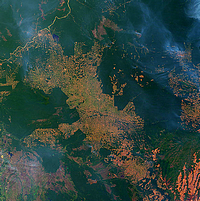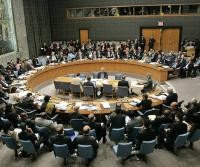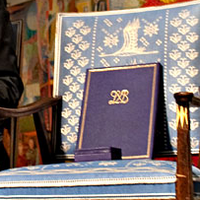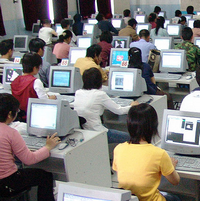Stephen W. Bosworth, the U.S. Special Representativefor North Korea Policy, offers a statement to reporters at Incheon Airport in South Korea, before meeting with South Korean Foreign Minister Kim Sung-hwan. The full text of Mr. Bosworth’s remarks upon his arrival in South Korea on Jan. 4, 2011, can be read here.
Latest Archive
Free Newsletter

This is Part II in a four-part series. Part I examined the follow-up agreement to the Kyoto Protocol. Part II examines the REDD+ agreement. Part III will examine financial assistance. And Part IV will examine technology transfers and adaptation. CANCÚN, Mexico — Amid all the discussion of global warming and how the international community can deal with it, the term “REDD +” was a particular focus of attention at December’s Cancún conference on climate change. The initiative stands out as the newest, but perhaps the least-tested and least-understood method to reduce global carbon emissions and abate rising temperatures. If the […]

On Monday, USA Today reported that the United States Air Force was increasing the size of its Afghanistan contingent in order to keep up with the dramatic expansion in the rate of airstrikes since Gen. David Petraeus took over command of the war effort. To some, the fact that Petraeus — the American military figure most associated with FM 3-24 (.pdf), also known as the counterinsurgency (COIN) manual — is responsible for increasing the use of airpower in Aghanistan represents a paradox. FM 3-24 takes a notably dim view of airstrikes, suggesting that they “can cause collateral damage that turns […]
Turkey has been pursuing an active trade agenda in South America recently. Bilateral deals negotiated or ratified in the past two months include an oil agreement with Venezuela, a free-trade agreement with Chile and a taxation agreement with Brazil. In an e-mail interview, Gareth Jenkins, senior associate fellow with the Silk Road Studies Program and Turkey Initiative, discussed Turkey-Latin American relations. WPR: What is the extent of Turkey’s diplomatic and trade ties with South America? Gareth Jenkins: During the Cold War, Turkey’s ties with South America were so limited as to be almost nonexistent, but a 1995 visit by Turkey’s […]

One global issue that looks to become more prominent in 2011 is that of United Nations Security Council (UNSC) reform. Several world leaders — including Presidents Barack Obama, Dmitry Medvedev, and Nicolas Sarkozy — have recently called for adding new members to the council, while others want to overhaul its structure and procedures. But the reformers must overcome a potential obstacle: The council just may be incorrigible by design. Most U.N. reform debates focus on how to change the Security Council to make it more representative and democratic. With respect to the former issue, the primary concern has been that, […]

This is Part I in a four-part series. Part I examines the follow-up agreement to the Kyoto Protocol. Part II will examine the REDD+ agreement. Part III will examine financial assistance. And Part IV will examine technology transfers and adaptation. CANCÚN, Mexico — Observers and participants at December’s climate change summit in Cancún, Mexico, routinely identified a follow-up agreement to the Kyoto Protocol as one area where progress was essential. The odds of reaching one were not promising. With just one year left on the Kyoto treaty, and Japan firm in its stance that it will not permit an extension […]

This is Part II of a two-part series. Part I examined the reality of freedom and repression in contemporary China. Part II examines the Chinese government and society’s struggle to adapt to the information age. BEIJING — Following weeks of outraged rhetoric and divisive diplomacy from Beijing, last month’s Nobel Peace Prize ceremony was blacked out on most — but not all — of China’s international satellite channels. The New Yorker’s Evan Osnos remarked that “The black screen is a darkly comic relic . . . left over from a time when Chinese newspapers hailed bumper harvests and denounced foreign […]

This is Part I of a two-part series. Part II will appear tomorrow, and will examine the Chinese government and society’s struggle to adapt to the information age. BEIJING — China’s rise is one of the critical geopolitical variables of our time, with many in the West fearing the advent of a politically repressive, secretive new superpower. However, Chinese society is more open than is commonly believed, and in certain spheres, Chinese citizens may even enjoy greater liberty than their Western counterparts. Moving to a more realistic appreciation of the distribution of freedom and repression in contemporary China can not […]

To kick off 2011, I thought I’d put together my top-10 international affairs wish list for the year, going from left to right on my wall map. But like Spinal Tap, only better, my list goes to 12: 1) Even more U.S. states pass decriminalization initiatives or medical marijuana laws. Yes, California’s infamous Prop 19 to legalize pot was narrowly defeated, 54 percent to 46 percent, but a majority of U.S. states are either considering such laws or already have them in place. In the four years since Mexican President Felipe Calderon declared war on the drug lords, 30,000 “soldiers” […]
